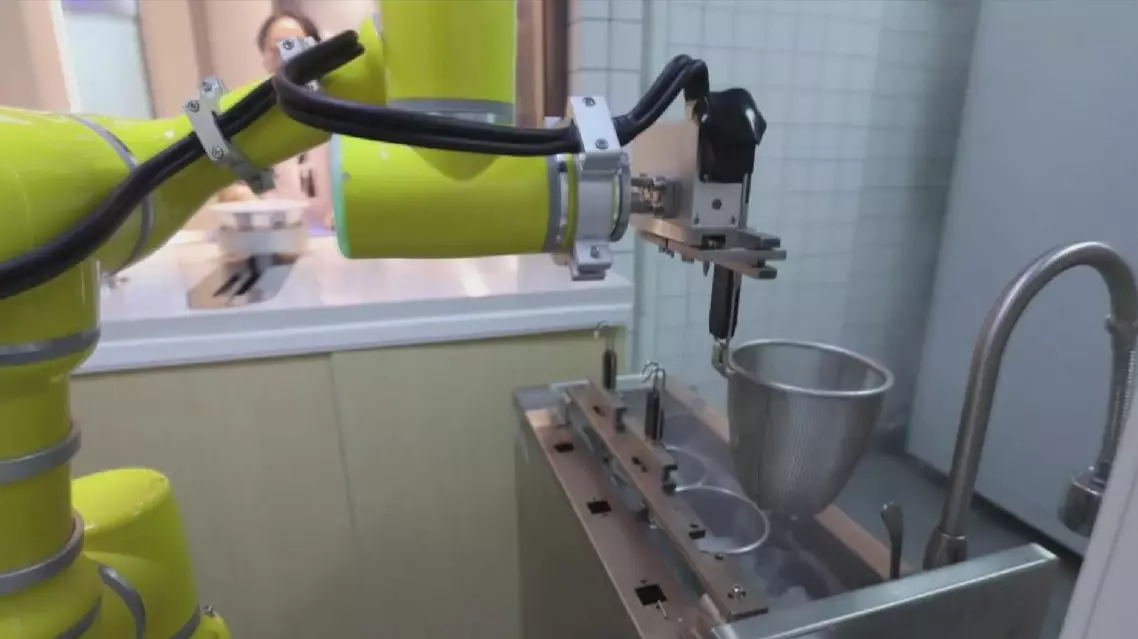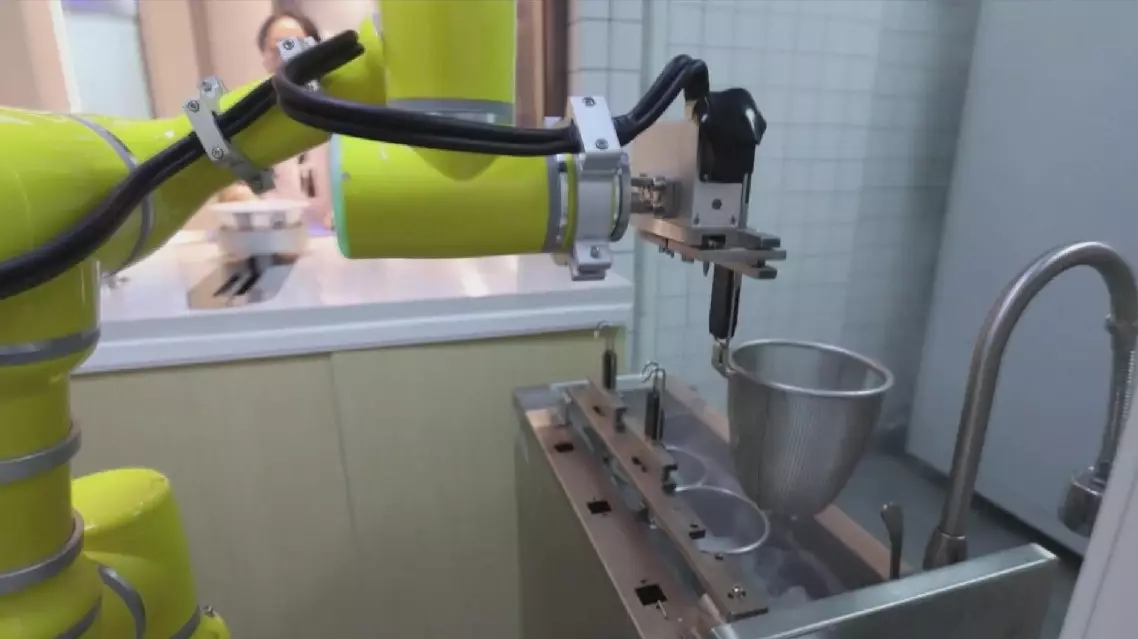With ever-growing interests in products and services of artificial intelligence (AI), Chinese young people are increasingly using this emerging technology to improve the quality of life, productivity and entertainment experience.
In Shanghai, an "AI canteen" is bustling with diners at meal time, while its kitchen has no cook. Its intelligent cooking system and robotic arms do the work of frying, baking, steaming, or boiling raw ingredients delivered from a central kitchen according to customers' orders. Robotic arms then pack the dishes and adjust the temperature for dine-in or takeaway.
With over 1,000 dishes of Chinese cuisines available, the "robot chefs" occupy smaller space and have unified operating standards, greatly helping the canteen reduce cost and increase service efficiency. The stable food taste and relatively low prices have made the restaurant popular among nearby residents and office workers.
"We have added a 'brain' [to the canteen], which plays the function of big data computation. For example, we can analyze the dining orders given by diners from a block in this canteen and accurately calculate what the elderly people or white-collar workers in this block prefer, like how much oil, salt and sugar are used in cooking," said Kong Zhai, vice president of an e-commerce company in Shanghai.
Young people are also keen on using AI to improve their work efficiency. Since she started using AI two or three years ago, Du Ying as a programmer has been as if her "fast forward button" were pressed at. Now she can generate 3D digital people in tens of seconds, finish PPT in one minute, and make a static website in five minutes. She also uses AI to write basic code, make work plans and itineraries, and practices oral English with AI.
"AI can turn texts into graphs in just 30 seconds. Let me show you and demonstrate. Once I type the text directly into it, magically, different kinds of charts will quickly come out in 30 seconds. It may take me several hours to draw just one of these diagrams, which may not be as good as the one generated by AI," Du said.
Data from Chinese e-commerce platform Tmall show that the main force of smart AI consumption is people aged 25 to 40. In the past few years, AI has been changing Chinese people's life at home. The size of China's smart furniture market has maintained double-digit growth for five consecutive years, and is expected to exceed 830 billion yuan, or 113.3 billion U.S. dollars, in 2025.
"It [AI] will continue to expand domestic demand and stimulate new areas of consumption growth, so as to drive overall consumption upgrades. It will foster a new mode of digital economic development that is powered by AI applications in different scenarios, and promote the coordinated development of digital industries and the digital transformation of traditional industries, creating more job opportunities and greater value," said Wang Luyao, associate professor at the School of Economics and Management of the Communication University of China.

Young Chinese keen on AI consumption

Young Chinese keen on AI consumption


















































